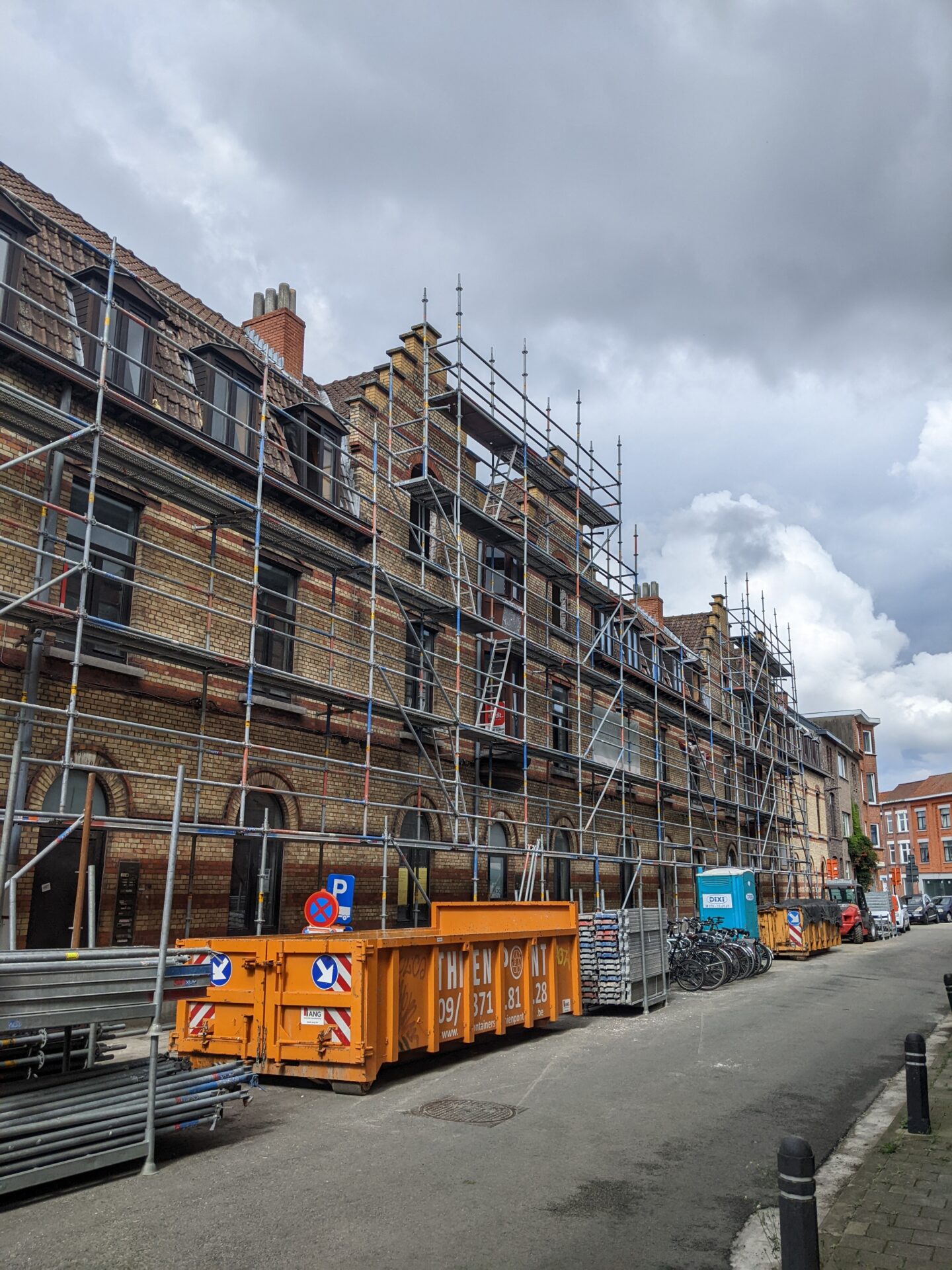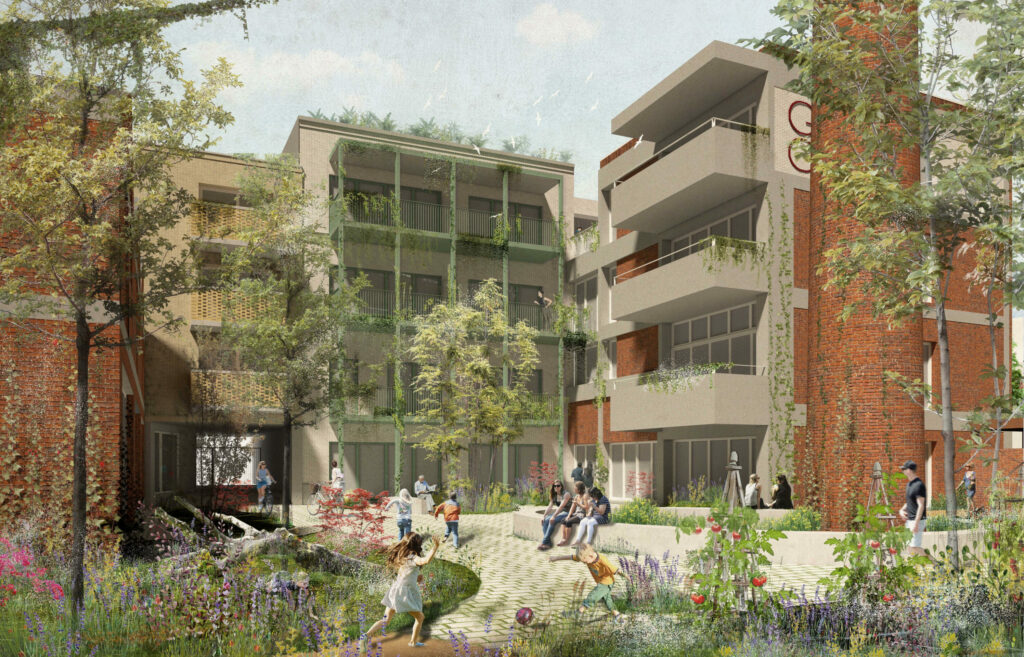While housing is a basic right, the increasingly expensive housing market is putting this in peril. One organisation is combatting this by encouraging citizens to take housing back into their own hands.
Renting in the Brussels-Capital Region has become significantly more expensive. Those signing rental contracts in 2023 paid an average of €1,249 per month – almost €100/month more than in 2022. It is also the most expensive region for purchasing property. Compared to 2019, house prices have risen by 25% and apartments by 20%.
"Living and finding housing has become very difficult, particularly in Brussels," Norbert Segers, the coordinator of the Brussels launch of housing initiative wooncoop, told The Brussels Times. "Not only for people who are entitled to social housing, which has been an issue for years, but now also for the middle class."
In Flanders, the group has been responding to the growing precariousness of the housing market for six years through cooperative living. Its concept allows ordinary citizens of different backgrounds and incomes to manage housing projects together.
Keeping cities in hands of citizens
Cooperative living differs from the traditional, more anonymous housing model. Residents choose to share instead of own and being part of a community is integrated into the design. In Switzerland, where the concept of cooperative living has been popular for years, a large share of the housing market is in the hands of such initiatives.
There are specific aspects to the wooncoop's concept, combining the best of renting and purchasing. People investing and living in the buildings don't physically own them, which removes the worries of being a property owner (such as applying for permits and covering the additional costs involved in buying a house).

Works at the Bellefleur project in Ghent. Credit: wooncoop
Tenants are also better protected and can live within the system for as long as they wish. "But you can also leave easily which creates flexibility. Once our portfolio grows, it will be easier for people to move to a bigger or smaller space depending on their needs."
The properties remain in wooncoop's hands: "There is no profit model behind it. Wooncoop buys the property, carries out renovations and builds up portfolios of buildings, but doesn't sell them."
The investment aspect means people who invest in the project (so-called 'cooperators') rent from themselves. "By doing so, we ensure that ordinary people can continue to afford to live in cities and in places that are becoming more expensive. This helps keep cities in the hands of citizens."
Solidary financing
A value is attached to every housing unit, referred to as the home value. It is the sum of all investments made at the start of the project to realise it and the maintenance cost. It forms the basis of the monthly charge paid by tenants. This charge has to be covered by the resident/cooperant by a combination of a monthly rent on the one hand, and a share accumulation on the other.
The more shares a resident buys, the lower the monthly rent. The share accumulation, which can be compared to paying off a mortgage loan at the bank, allows people who aren't able to invest a big chunk at once to buy more monthly shares.
There are also solidarity mechanisms that can make participating more affordable. For example, friends and family can become shareholders, thereby giving tenants a discount on their monthly burden. More affluent residents can also show solidarity towards lower-income people by providing more funds to make the project possible. "This helps vulnerable groups who find it harder to enter the housing market."
This community aspect is also reflected in the projects' designs, which encourage interaction with fellow residents and the neighbourhood without people having to give up their own space or privacy.
Supporting the system
Since 2017, wooncoop has completed 53 housing units (individual rooms, studios and apartments), and another 200 are in the making. A total of 1,772 'cooperators' support the initiative, alongside 460 lenders (external parties).
The group now wants to start its first project in the Brussels-Capital Region, where the housing need is most urgent. There is clear political interest in Brussels for such projects: State Secretary for Urban Development Ans Persoons, who is on a mission to make the capital more affordable, is impressed by the innovative approach offered by housing cooperatives in tackling housing deprivation.
"My recent visit to projects in Geneva convinced me even more of the potential of this model, also for Brussels," she told The Brussels Times. Aside from guaranteeing long-term affordable housing, it can also respond to very specific housing needs, "such as single parents with children who cannot find affordable housing, which sometimes force couples to stay together."
Related News
- Brussels to buy 25% of new property developments over ten years
- Which streets in Brussels are the most expensive in Belgium?
- Costs, offers and deeds: What to know when buying property in Belgium
However, Segers argued that the problem in the Region is not the lack of interest, but finding property to buy, and getting funding for this. This is more challenging as the concept of cooperative living is relatively unknown in the country, meaning both governments and banks are more wary of getting involved.
He noted that authorities recognising the existence of such concepts and giving them the ability to purchase government-owned buildings when they are sold would be a major step forward.
"It is therefore crucial that governments proactively provide support, both in terms of legislation and funding, to successfully introduce and grow such initiatives in Brussels," Persoons concluded.

